US tariffs plan emerges from White House ‘chaos’
Figures in Washington say they were blindsided by Donald Trump’s bombshell, unscripted trade announcement.
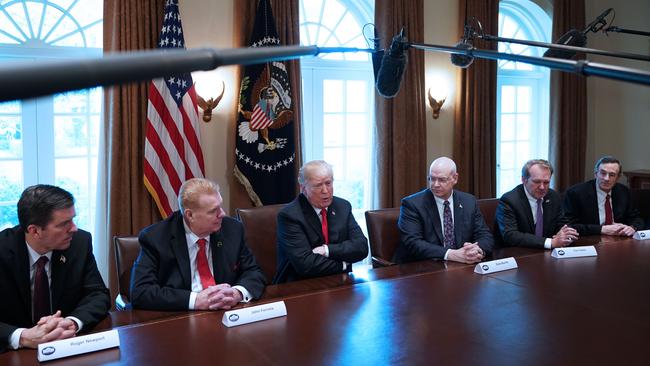
US Commerce Secretary Wilbur Ross told confidants yesterday (AEDT) that President Donald Trump would unveil new steel and aluminium tariffs the next day.
By late last night (AEDT), the would-be announcement was downgraded to a listening session.
Then, the plan changed again.
After the media were hustled into the White House Cabinet Room, where Mr Trump was meeting with business executives, the President said: “We’re going to be instituting tariffs next week.”
When the session was breaking up, in response to a shouted question from a reporter, Mr Trump provided the specific rates: 25 per cent on steel, 10 per cent on aluminium.
The news sent the stock market tumbling by more than 400 points and drew swift opposition from politicians on Capitol Hill who said they were blindsided.
“I didn’t know he’d announced anything,” said Republican Senator Rob Portman, as he left a closed-door Senate GOP lunch.
Mr Portman said he supported tariffs for certain products from certain countries, but not a broad imposition of them. “We want to protect our steelworkers. But we want to be sure it’s not going to also hurt the automakers.”
The mixed signals on trade were the latest developments in a week that reminded some top aides of the first tumultuous months of the administration last year.
In the past few days, the GOP president has attacked his own attorney general, Jeff Sessions, by calling his actions “disgraceful”; seen the resignation of one of his closest advisers, communications director Hope Hicks; and stunned Republican politicians and the National Rifle Association, a one-time ally, with a call for broad action on gun control. Then came the unscripted trade announcement.
Those actions are raising tensions on Capitol Hill and could make it more difficult for the President to achieve the top goals he laid out for the year: changes to immigration laws and infrastructure projects.
“Getting big things done to help the American people requires close, careful co-ordination between the White House and Congress,” said Michael Steel, who served as a senior aide to former House Speaker John Boehner.
“It’s a painstaking, collaborative process — and it’s simply impossible to do when the administration is lurching from one distraction to the next, and the President himself seems to prefer chaotic improvisation to effective governance,” he said.
After gaining some momentum from the passage of tax cuts late last year, many Republicans were convinced that chief of staff John Kelly was winning in his effort to bring discipline to the West Wing.
Mr Kelly was upset about how the tariff announcement was handled, specifically that it was leaked in advance, a White House aide said.
Before Mr Trump’s meeting at the White House last night, Mr Kelly was at an event marking the 15th anniversary of the Department of Homeland Security where he rolled his eyes while talking about his job. Mr Kelly was secretary of the agency before taking over as Mr Trump’s staff chief.
“The last thing I wanted to do was walk away from one of the great honours of my life — being the secretary of homeland security — but I did something wrong, and God punished me, I guess,” Mr Kelly said, drawing laughter from the crowd.
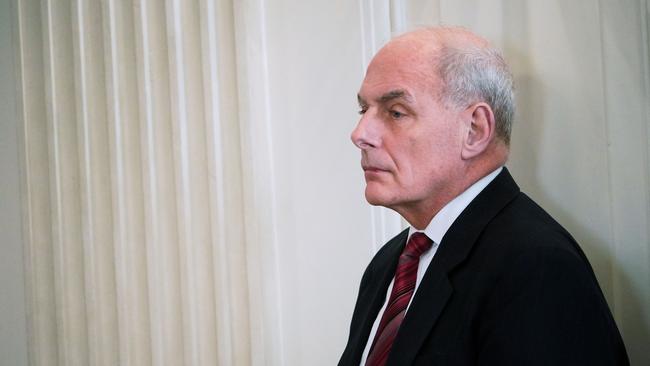
The most lasting distraction in the first months of this year has been the resignation of White House staff secretary Rob Porter, who quit amid public allegations of domestic abuse that had prevented him getting full security clearance.
Mr Porter’s departure opened the door for economic nationalists inside Mr Trump’s administration to push for the tariffs announced on Thursday.
His resignation led to unusual tension between the president and Ms Hicks and put Mr Kelly on a collision course with senior adviser Jared Kushner, the President’s son-in-law and top adviser who had also been operating with an interim security clearance.
Mr Kelly, it was learned this week, had decided to downgrade clearances for administration officials, including Mr Kushner’s, who have had security clearances pending for more than six months. That prompted Mr Kushner to complain to other aides this week that Mr Kelly is unfairly targeting him.
Mr Porter played the role of gatekeeper in the White House, and one of his chief tasks was scheduling trade meetings. He had helped isolate Peter Navarro, an adviser known for his hawkish views on trade policy.
With Mr Porter gone, Mr Navarro made a direct pitch for tariffs to Mr Trump, who elevated him to become an assistant to the president, a person familiar with the matter said. The President then told Mr Kelly that he wanted Mr Navarro restored to a central role in the administration’s trade policy, the person said.
Mr Navarro excitedly described the aluminium and steel tariff proposal to select White House officials early yesterday (AEDT), another official said. By that night, Mr Ross — who supports the tariffs — was describing the plan as a done deal, the official said.
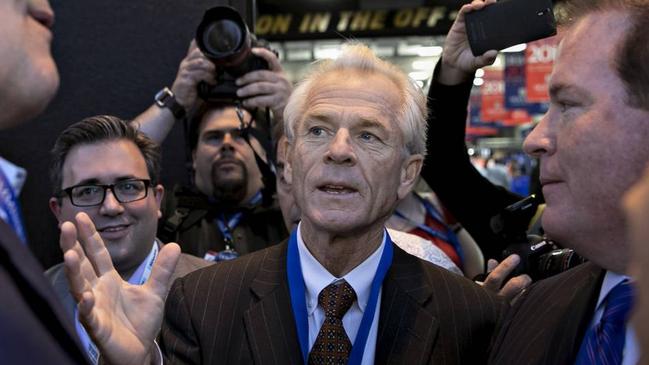
That caught several senior officials off-guard, including Messrs Kelly and National Economic Council Director Gary Cohn, the president’s top economic adviser who doesn’t support the tariffs, an aide said.
“Total chaos,” said Republican Bill Pascrell, the top Democrat on a House panel that oversees trade. “Either there’s disagreement in the administration, or there’s disorganisation.”
The tariff announcement came one day after Mr Trump hosted a bipartisan meeting on gun violence, where he endorsed an expansion of background checks and made supportive comments about several other proposals backed by Democrats.
“You saw it, right? It was wild,” Republican senator John Thune said of the guns meeting. “The President’s going to have to narrow his list of issues he would like to see addressed and figure out what’s realistic.”
Senate Majority Whip, Republican John Cornyn, who sat next to the President at the meeting, said: “I would call that a brainstorming session. It wasn’t legislating 101.”
While many politicians said the passage of guns legislation would depend on the President keeping the pressure on Congress, Mr Cornyn said it was up to politicians to decide what they want to send to Mr Trump for his signature.
“That’s our job. The President’s job under the Constitution is to sign or veto legislation,” he said.
NRA spokeswoman Jennifer Coxe-Baker said the meeting “made for great TV” while the “gun control proposals discussed would make for bad policy.”
With Peter Nicholas
Dow Jones Newswires



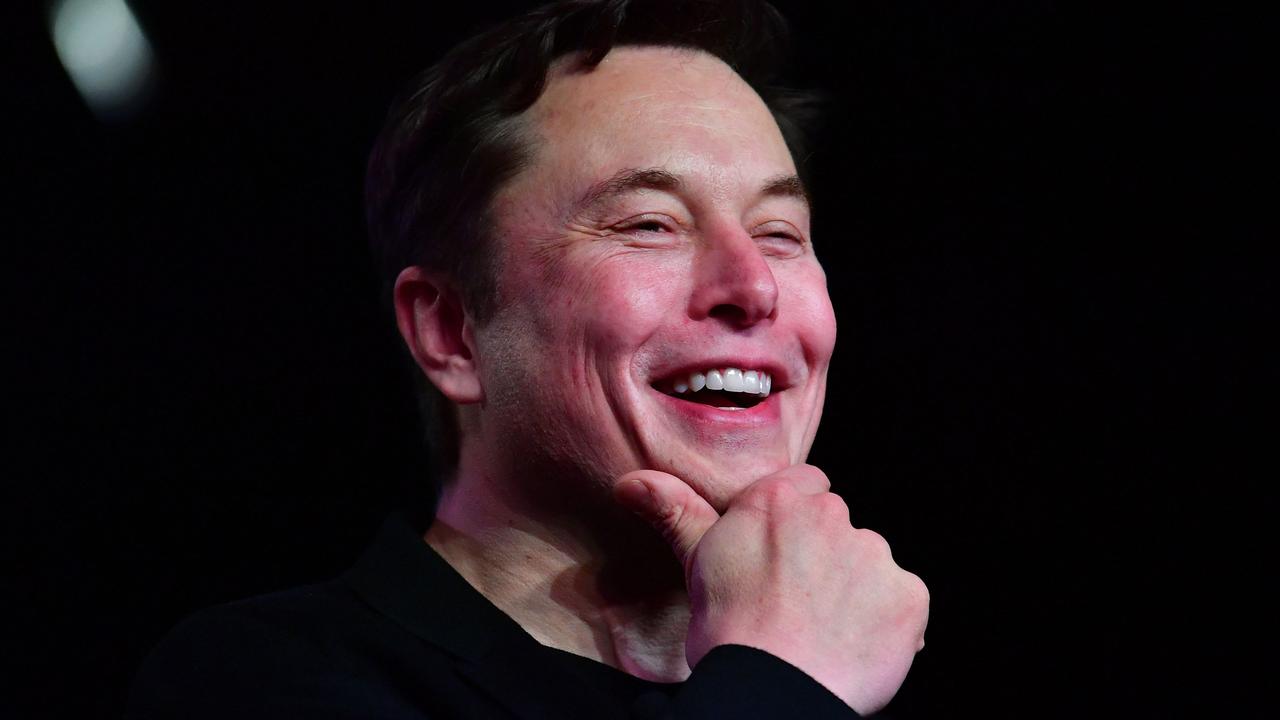
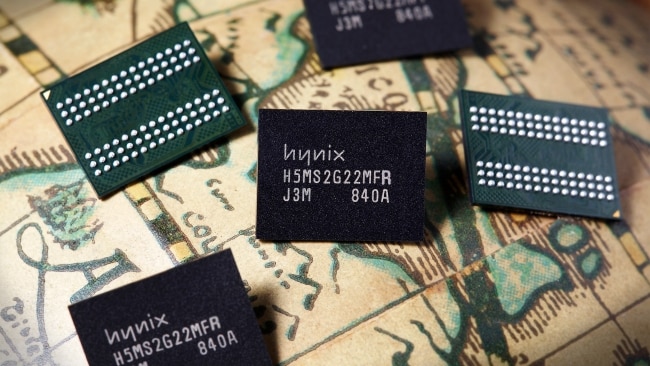
To join the conversation, please log in. Don't have an account? Register
Join the conversation, you are commenting as Logout